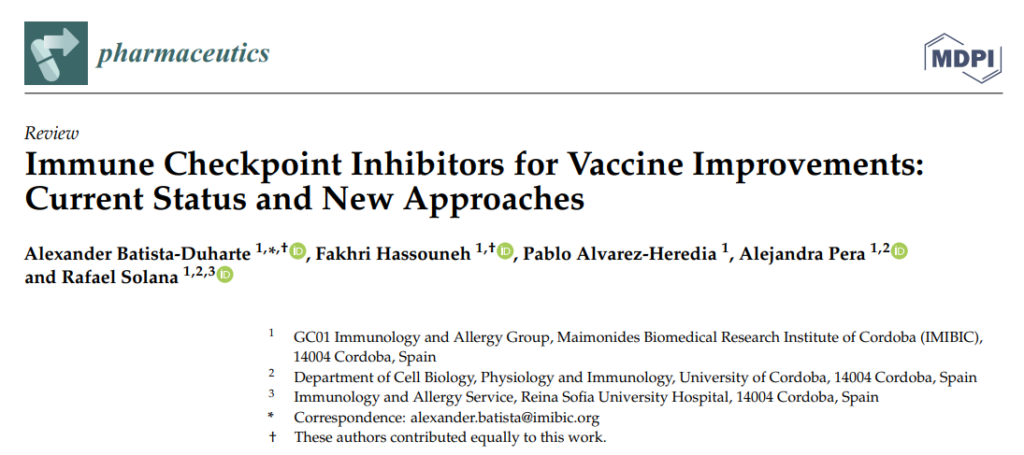
Vaccination is widely considered one of the greatest achievements of modern medicine. Vaccines save millions of lives and protect millions more from getting sick. However, each year roughly three million individuals still die of vaccine-preventable diseases, including respiratory infections, tuberculosis, diarrheal diseases, malaria, and others, especially in low-income countries. Other challenges consist of obtaining antitumor vaccines, and more effective vaccines for older people.
In this context, Alexander Batista Duharte has, together with his supervisor and other team members, published an open access review article about the current status and new approaches of Immune Checkpoint Inhibitors (ICI) for vaccine improvements. The article devotes special attention to the use of new molecular technologies, such as post-translational modulation, as vaccine adjuvants. This method has been studied mainly in cancer models, but studies are already beginning to be carried out in anti-infective vaccines.
Immune Checkpoint inhibitors are drugs that work by blocking checkpoint proteins from binding with their partner proteins. This prevents a signal from being sent, allowing the body’s own immune system to kill cancer cells. One of the strategies to achieve effective vaccines has been the use of ICIs as immunological adjuvants. An adjuvant is a substance that is added to a vaccine to stimulate and enhance the quality, magnitude, and durability of the specific immune response, i.e. the efficacy of the vaccine. The different types of ICI as molecular adjuvants for personalised vaccines have gained significant momentum in recent years.
A vast body of knowledge exists about the use of monoclonal antibodies (mAbs). mAbs were the first generation of ICIs used to improve the efficacy of vaccines, but due to many problems they present, the use of smaller molecules, such as antisense oligonucleotides (ASOs), small interfering RNA (siRNA), aptamers, peptides, has gained more attention. In this area, further research is needed to study off-target effects and other toxicity issues. The authors also point out the importance of bioinformatics methods and high-precision technologies as tools to overcome obstacles related to the delivery of the new molecules.
The Fluvac-Tregs project, developed by Alexander within the IMIBIC-P2Med programme, is exploring the use of one of these molecular technologies based on silencing genes by using antisense oligonucleotides. This is hypothesized as a potential way to improve the efficacy of flu vaccines in older people.
Download the article here.

